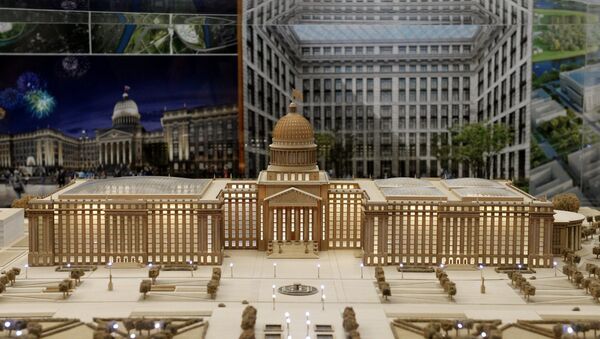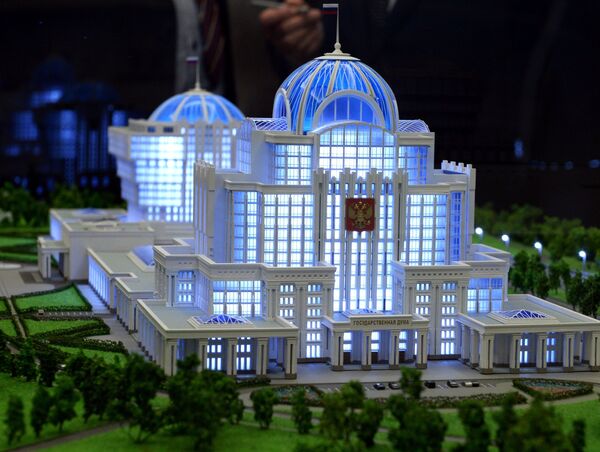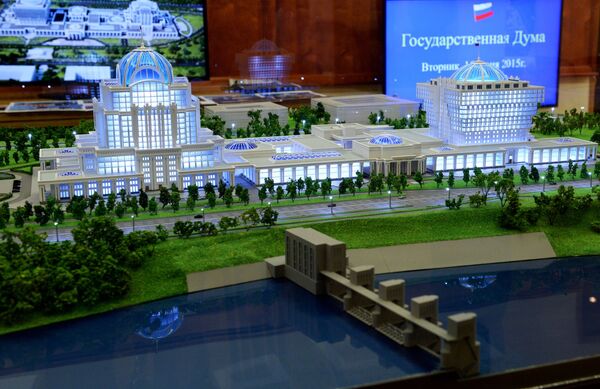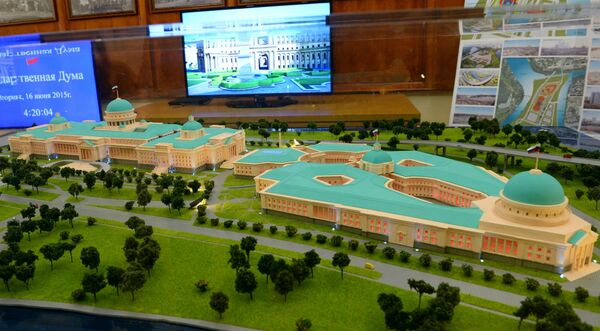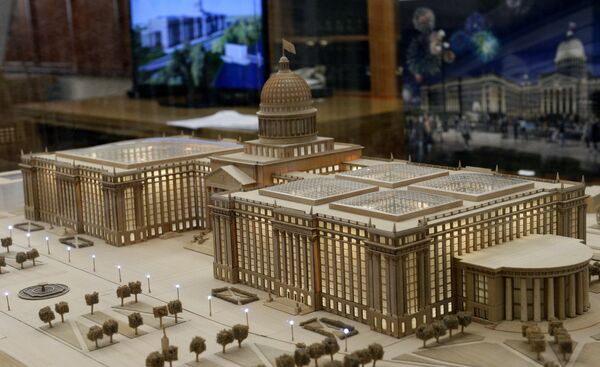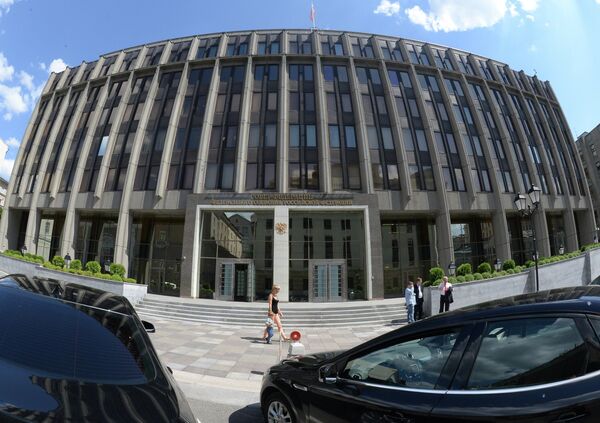Russian lawmakers have the chance to choose what their new working venue is going to look like.
They have one week to vote from among the three mock-ups which made it into the final round.
All three, however, have raised eyebrows due to their size and spaciousness. The complex will occupy over 17 hectares of earmarked space on a small island which, critics of the project say, considerably complicates the transport infrastructure.
The size of the complex is set to be about 345,000 square meters, the height of the parliamentary center will be about 75 meters.
The lower chamber, the State Duma, will have 135,000 sq. meters at its disposal, while the Council of Federations will occupy 74,000 sq. meters.
The complex is set to house 23,000 people, while the total number of deputies and senators combined does not exceed 650 people.
The total cost of the project is estimated at 1.5 bln rubles ($27mln).
The three projects which made it to the final round include one designed by the architectural firm Mosproject, which features a building which resembles an upside-down pyramid. Critics, however, were quick to compare it with a “monstrous over-turned chandelier”.
The Italian architect Lanfranco Cirillo, who obtained Russian citizenship last year, and his company Stroigascomplect submitted a model which boasts a classic style featuring an antique amphistylar, columns, cupola and atriums.
The architect workshop Evgeny Gerasimov and Partners has presented a mock up in a traditional palace style.
Someone compared it with the US Capitol, but the architect says it is designed to resemble St. Isaac’s Cathedral or Kazan Cathedral in St. Petersburg.
The projects have already caused a heated discussion around the Internet and inspired some cartoons.
The pictures hearken back to the Soviet times, when in the 1930s the Soviet leadership wanted to erect the so-called Palace of Soviets, what would have been the world’s tallest structure at the time. Its construction started in 1937 but was terminated due to the German invasion.
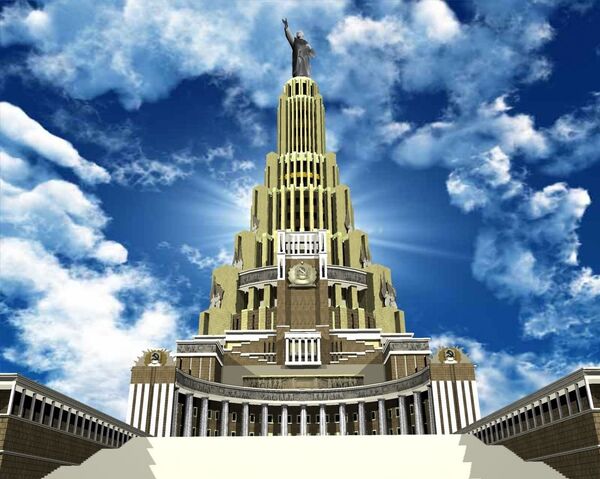
The building was supposed to be 415 meters in height with a huge statue of Lenin on top.
The idea to move the parliamentarians out of the city center dates back to 2012. Then-president Dmitry Medvedev proposed to create a separate “metropolitan federal district” by stretching Moscow 1,490 sq. km beyond its southwest borders. The area became known as “New Moscow”.
The idea was to lift the burden on the Moscow center, where most state and business offices are located, and save it from the gnawing issue of traffic gridlock, which has threatened Moscow with a transport collapse.
The lawmakers, however, did not like the idea and a new site was chosen in northwest Moscow.
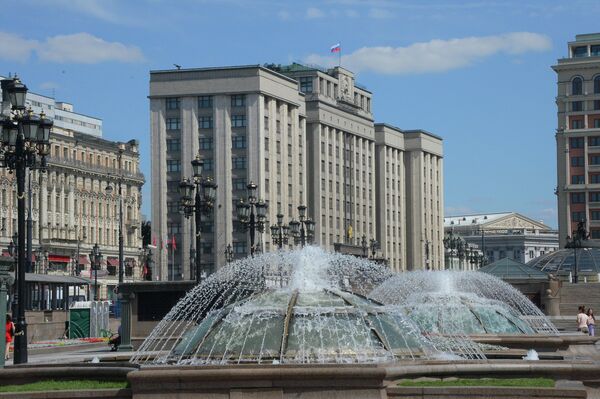
The two existing buildings which house the legislature in the center of Moscow are set to be demolished. The media speculates that investors are looking to construct a hotel on the site of the State Duma.
And an apartment complex instead of the current building of the Federation Council.
The actual construction of the parliamentary center is set ot start in 2016 and to last until 2019.

